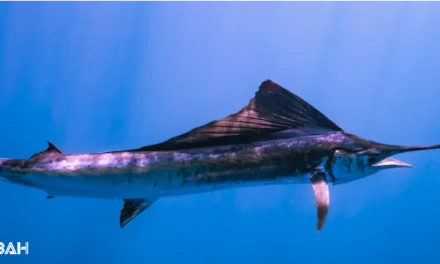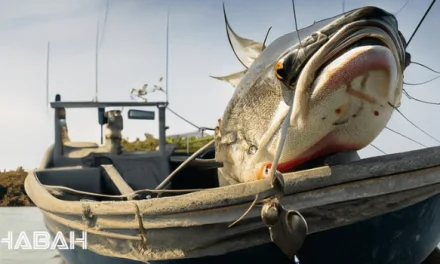Shellfish is a popular delicacy enjoyed across the globe. Whether it’s succulent lobster, juicy shrimp, or mouthwatering oysters, shellfish can be found in diverse cuisines and on many restaurant menus. However, for individuals who follow Islamic dietary guidelines, a pertinent question arises – is shellfish halal? In this article, we will delve deeper into the various schools of thought surrounding the consumption of shellfish in Islam. We will explore the arguments for and against their halal status, and shed light on the different interpretations of scholars. Ultimately, readers will be able to make an informed decision regarding shellfish and its compliance with halal guidelines.
The Controversy over Shellfish In Islam
Halal is an Arabic word that means “permissible” or “lawful” in Islam. For a food to be considered halal, it must comply with Islamic dietary laws as described in the Quran and by Islamic scholars. Determining whether seafood like shellfish is halal is an important issue for observant Muslims.
The Quran states:
“Lawful to you is game from the sea and its food as provision for you and the travelers.” (Quran 5:96)
However, Islamic scholars have debated if certain types of seafood are exceptions to this general permissibility. This has led to differing rulings on shellfish between various schools of Islamic jurisprudence.
What is Halal?
- Permitted, lawful, legal according to Islamic law
- Opposite of haram (prohibited, unlawful)
- Applies to all aspects of life, not just food
Why Halal Certification Matters
| Reason | Description |
|---|---|
| Religious obligation | Eating halal is obligatory for Muslims |
| Global market | $2.3 trillion industry in 2018 |
| Accessibility | Needed to accommodate Muslims living worldwide |
| Consumer confidence | Certification reassures consumers of standards |
Types of Shellfish
- Crustaceans (shrimp, crab, lobster)
- Molluscs (clams, oysters, mussels)
- Echinoderms (sea urchins, sea cucumbers)
The permissibility of these groups is debated by Islamic scholars.
Overview of Islamic Rules on Seafood
The Quran provides a general ruling that seafood is permissible for Muslims to eat:
“Lawful to you is game from the sea and its food as provision for you and the travelers.” (Quran 5:96)
However, Islamic jurists have provided additional interpretations on which seafood is halal.
General Permissibility
- Quran explicitly allows seafood
- Considered a blessing from Allah
- Provides sustenance for communities
But some exclusions have been defined through:
- Hadiths sayings and traditions of Prophet Muhammad (pbuh)
- Fatwas (religious rulings by scholars)
- Fiqa (Islamic jurisprudence)
Exceptions to Permissibility (Haram)
The main exceptions are:
- Carnivorous sea animals
- Ex: sharks
- Toxins and poisons
- Ex: pufferfish
- Appearance of forbidden land animals
- Ex: sea snakes resembling snakes
| Type | Halal Status |
|---|---|
| Fish | Halal |
| Shrimp | Debate |
| Crab | Debate |
| Lobster | Debate |
This has led to differences in rulings on shellfish between schools of Islamic law.
Types of Seafood That Is Halal Or Haram
There are differing opinions on the permissibility of various types of shellfish in Islam.
Crustaceans
Crustaceans include shrimp, crab, lobster, and crayfish. They are categorized based on their hard outer shells and jointed limbs.
“Most Islamic scholars agree that crustaceans are generally considered haram.”
Reasons cited include:
- Scavengers and bottom-feeders
- Lack scales and fins
- Resemble land insects
However, some argue they live in the sea so should be halal.
Molluscs
Molluscs include mussels, clams, oysters, scallops, octopus, and squid.
“Most Islamic schools don’t forbid mollusks and they are considered halal.”
Reasons include:
- Extract nutrients from water like fish
- No direct prohibition in Quran or Hadith
Some prohibit due to filter-feeding system.
Echinoderms
Echinoderms include sea urchins, sea cucumbers, starfish.
- Generally allowed as from the sea
- But some avoid for toxins or appearance
Overall, there are mixed opinions on the halal status of different shellfish types.
Differences in Opinion by Islamic School
There are four main schools of Islamic jurisprudence (fiqh) that have rulings on shellfish:
Hanafi
The Hanafi school is largest and considers all shellfish to be halal:
“Hanafis consider all seafood to be halal.”
They cite the general permissibility of seafood in the Quran.
Maliki
The Maliki school prohibits all shellfish:
“Under the Maliki School of Thought, all shellfish are haram.”
They argue that anything from the ocean is only halal if it resembles what is halal from the land.
Shafi and Hanbali
The Shafi and Hanbali schools have mixed rulings:
- Allow molluscs like oysters, mussels, clams
- Prohibit crustaceans like crab, lobster, shrimp
They evaluate each type of shellfish independently based on its characteristics and interpretation of religious texts.
So there are diverse stances on shellfish between the major schools of Islamic law.
Practical Considerations
Beyond religious rulings, there are some practical considerations that impact the halal status of shellfish for Muslim communities:
Availability and Cost
- Shellfish harvesting and consumption varies globally
- Can be a cheap protein source where abundant
- But costly or unavailable in certain regions
“For some communities, shellfish provides an affordable and accessible source of protein.”
“In many parts of the world, shrimp paste and fish sauce are dietary staples.”
Allergies and Environmental Factors
- Some populations are prone to shellfish allergies
- Sustainability is a concern with certain shellfisheries
- Pollution can render shellfish haram in certain areas
“In polluted waters, shellfish can absorb toxins, making them harmful for human consumption.”
So practical reasons like availability, allergies, and pollution may impact if shellfish is halal.
Role of Individual Conscience
- Differences between schools allows for personal interpretation
- Individuals should make reasoned judgment
- Local customs may also shape practices
There is flexibility for Muslims to follow halal principles within their specific life circumstances.
Frequently Asked Questions – Is Shellfish Halal?
Is shellfish halal in Islam?
According to Islamic dietary laws, shellfish is generally considered haram (forbidden) to consume. Shellfish includes creatures like crabs, lobsters, oysters, octopus, and squids.
Why are shellfish considered haram in Islam?
In Islam, the concept of halal (permissible) and haram (forbidden) is derived from the teachings of the Qur’an and the Sunnah the practices and teachings of the Prophet Muhammad, (peace be upon him). The prohibition of shellfish is based on the belief that they do not fulfill the criteria for halal consumption.
Can Muslims eat any type of seafood?
Yes, Muslims can consume seafood as long as it meets certain criteria. According to the Hanafi school of thought, only fish with scales are considered halal, meaning that other types of seafood like shellfish and crustaceans are considered haram.
Are there any exceptions or differences in opinion among scholars?
Yes, there are differences in opinion among scholars regarding the permissibility of consuming shellfish. While the majority of Islamic scholars consider shellfish haram, there are a few minority opinions that argue for their permissibility.
Is there any specific halal certification for seafood?
There is no specific halal certification required for seafood. However, some Islamic organizations or certification bodies may provide halal certifications for seafood products to give assurance to Muslim consumers.
Can I eat sushi if I follow Islamic dietary laws?
Sushi is a type of food that often includes various seafood, including shellfish. As shellfish fall under the category of haram, it is generally advised for Muslims to avoid consuming sushi that contains shellfish.
Is it permissible for Muslims to eat shellfish according to Sunni Islam?
According to Sunni Islam, shellfish is generally considered haram. Different schools of thought within Sunni Islam, such as the Hanafi and Maliki schools, have consensus on the prohibition of shellfish.
Can Muslims eat fish and other seafood from the sea?
As mentioned earlier, fish with scales are generally considered halal in Islam. So, Muslims are allowed to consume fish that meets the criteria of halal, excluding shellfish and other haram sea creatures.
Conclusion
In conclusion, there are diverging perspectives on shellfish in Islam:
- The Quran establishes general permissibility of seafood
- But exceptions have been defined by Islamic scholars
- Rulings vary between schools of jurisprudence
- Hanafi – all shellfish halal
- Maliki – all shellfish haram
- Shafi and Hanbali – mixed based on type
“There is a long-running debate around seafood in Islam.”
- Practical factors like availability and pollution also affect customs
- Individual Muslims may exercise personal discretion
Further guidance is needed to address modern shellfish types like crustacean farming and processing. Dialogue between scholars can lead to greater consensus.
The diversity of opinion reflects the complexity of interpreting scripture and applying God’s law. But the shared goal is to obey religious principles and honor the sanctity of life. For Muslims, determining if shellfish is halal is an important part of achieving that objective.





